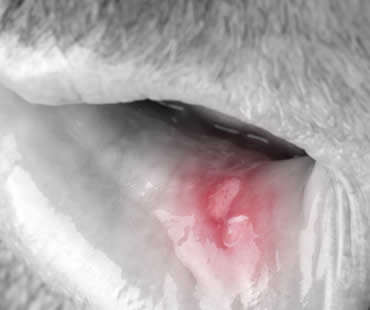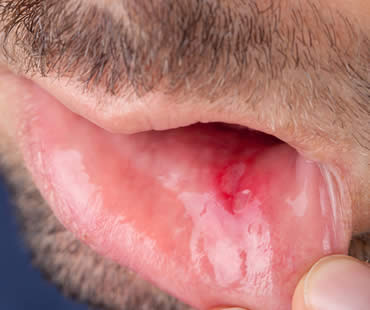
Jan 4, 2024 | Dental Information, Dental Topics 2, Blog
Tooth pain can be one of the most uncomfortable types of pain there is. It can make your whole jaw and head ache, interfere with eating, and cause your teeth to be more sensitive. One common reason for a toothache is your wisdom teeth, which are the molars in the very back of your mouth that develop last. Sometimes they don’t even erupt, but they can still be there under your gums causing trouble. If you experience pain related to wisdom teeth, here are some suggestions.
Make an appointment to see your dentist as soon as possible. This way you can find out for sure if your wisdom teeth are to blame for your pain, and decide the best treatment plan for your situation. A dentist examination, which may include x-rays, is the best way to determine exactly what’s going on with your teeth. You may not even be able to see your wisdom teeth, but they might be growing improperly under your gums. Often, wisdom teeth need to be extracted to avoid continued pain or worsening condition. Luckily, wisdom teeth extraction is a common procedure that your dentist or oral surgeon is very familiar with, and can provide you with great treatment that will end up relieving your pain.
While waiting for your dental appointment, try applying an over-the-counter numbing gel such as Oragel. This may help relieve your pain at least for a short time. Also, taking non-prescription pain medicines should help. Acetaminophen and ibuprofen are both good choices to try, especially to subdue the pain when you want to sleep.
Remember that prevention is often the best way to avoid dental pain. Brush your teeth at least twice a day, and floss every day. See your dentist regularly for checkups, because problems with wisdom teeth can sometimes be spotted before you ever begin to feel any pain associated with them. This allows you to deal with the problem before you have to endure a toothache.
Our dental office is located in Conyers

Aug 17, 2018 | Dental Information, Dental Topics 2, Blog
The school year has started and kids are busy with school, sports, and social activities. It’s a challenge sometimes to get your kids to eat healthy when they are on-the-go, not only for their overall health but also for their oral health. Here are some tasty and healthy snacks that you can offer your kids, and chances are they’ll like them!
Yogurt:
Dairy foods help build strong bones, and they’re also great for a strong mouth. Eating low-fat yogurt provides calcium. Try mixing it with berries and granola for a healthy parfait, or making homemade fruity yogurt popsicles to attract your children’s attention.
Cheese:
Besides providing calcium, cheese helps fight cavities. It triggers saliva production, which washes away food particles in your mouth and the acids that can weaken your teeth. In these ways, cheese halts the process of cavity formation. Cheese not only contains calcium but also phosphorous, which both help rebuild the enamel on your teeth.
Blueberries:
These berries may be small, but they’re packed with Vitamin C, minerals, and folic acid. They also contain ingredients which studies show help prevent diabetes and cancer. Try adding blueberries to pancakes and muffins, or sprinkling them with a small amount of sugar and topping them with whipped cream.
Almonds:
Nuts like almonds contain ingredients to fight diseases, as well as Vitamin E, fiber, calcium, and iron. Most kids enjoy eating almonds raw, but remember they are a choking hazard for young children.
Whole wheat bread:
Bread made with whole wheat provides kids with iron, zinc, magnesium, and vitamins. Whole grain cereal offers calcium, fiber, and vitamins. Enjoying these whole wheat snacks with milk provides an even healthier snack for your kids.
We look forward to seeing you in our Conyers dental office

Apr 23, 2021 | Dental Information, Dental Topics 2, Blog
Most people who bite their nails wish they didn’t do it. If you’re a nail biter, you probably know that it spreads germs and leaves your nails looking unattractive. But did you know that it can harm your teeth? Let’s find out the connection between nail biting and tooth damage, and learn some ways to stop this nasty habit.
What does nail biting do to my teeth?
Just like chewing on hard items like ice, nails are hard and put stress on your teeth when you bite down on them. With time, your teeth will weaken and your teeth can chip or break. Since nail biting is a repetitive habit, constant chewing on your teeth wears them down faster than they should. Your teeth also can become more sensitive when the enamel is worn down. Additionally, biting your nails can move your teeth out of place. Your gums are at risk too from the additional stress the nail biting puts on them, eventually leading to gum disease and even tooth loss.
What if I wear braces?
Braces already add pressure on your teeth, so nail biting can stress them even more. The roots of your teeth can be weakened, which leads to problems like tooth loss.
How can I stop biting my nails?
Here are some tips to help you stop the nail biting habit:
- Get a hobby that uses your hands, like video games, knitting, or painting.
- Occupy your mouth by chewing sugarless gum, sucking on mints, or eating carrot sticks.
- Add foods to your diet containing calcium and magnesium because they help repair and grow your nails.
- Cover your nails with tape, petroleum jelly, fake nails (for girls), or foul-tasting liquid.
- Get manicures to make your nails look nice, so you will be less inclined to bite them.
If you live in the Conyers area contact us today

Apr 3, 2020 | Dental Information, Dental Topics 2, Blog
In many households, the bedtime routine is no fun. One of the trickiest parts for some parents is getting their kids to brush their teeth. However, it’s not a part of your child’s routine that should be skipped. To help make taking care of their teeth fun for children, here are some ideas for parents.
Toothbrushes:
Provide your kids with fun toothbrushes! By choosing a brush decorated with their favorite character or color, your children will think of their toothbrush more like a toy than a dental tool. Consider getting more than one toothbrush, so each night they can choose the one they want to “play” with at the time.
Toothpaste:
Children are picky about their toothpaste flavors just like their foods. Select toothpaste that you know your kids will like. Some of the flavor options include bubble gum and fruits, as well as the standby mint.
Floss:
If they start flossing at a young age, your kids will likely view it as part of their oral hygiene routine all of their life. Try using some of the fun flossing tools on the market today, because they may help get your child interested in flossing. There are many colors and shapes to choose from, so keep trying until you find one that motivates your child.
Rewards:
Enticing your children with rewards is often an easy way to encourage them to perform a task without arguing. Consider making a rewards chart and giving them a sticker each time they brush and floss. By the end of a week filled with good dental hygiene, a special reward will await them!
Schedule your appointment at our Conyers dental office

Jun 21, 2019 | Dental Information, Dental Topics 2, Blog
The word cancer strikes fear and dismay in most people, and it’s no different when the diagnosis is oral cancer. Nearly 37,000 Americans are diagnosed with this disease each year and about 8,000 succumb to it. You should know the risk factors and symptoms so that you can either avoid it completely, or catch it early enough that you’ll have the best chance of recovery.
Who is at risk?
Oral cancer is not contagious, but there are some activities that put you at higher risk for the disease. Both smoked and smokeless tobacco are linked to oral cancer, and the more you use tobacco the greater your risk becomes. Excessive alcohol consumption also increases your risk, and paired with tobacco use your risk is even higher. Sun exposure heightens your chances of developing cancer of the lip.
What are the symptoms?
Oral cancer patients may experience any of these signs of the disease:
- A sore in the mouth or throat that bleeds often and doesn’t heal within two weeks
- A thick area or lump in the cheek
- Patches in your mouth or on your lips that are red, white, or a mixture of the two
- Pain or difficulty swallowing
- Difficulty wearing your dentures
- A sore throat
- Tongue or mouth numbness
- Difficulty chewing, or moving your jaw or tongue
- Earache
What should I do if I have symptoms?
If you notice any of these signs, visit your dentist right away to get screened for oral cancer. When diagnosed early, there is an 80 percent survival rate. Unfortunately many patients wait too long to see their dentist, and late-stage diagnosis is the reason for most oral cancer deaths.
We treat patients from Conyers and the surrounding area

Mar 27, 2020 | Dental Information, Dental Topics 2, Blog
Sores in or around your mouth are painful and unsightly. They can have a variety of causes, such as infections, irritation from orthodontics or dentures, and symptoms of another health problem. Here are descriptions of the most common mouth sores.
Cold sores
Also called fever blisters, cold sores appear around your lips, nose, or chin. These extremely contagious, fluid-filled blisters are caused by the herpes simplex virus type 1. Once you are infected with primary herpes, the virus remains in your body and occasionally flares up. Cold sores typically heal by themselves in about a week. Over-the-counter topical anesthetics may help, and your dentist may prescribe antiviral medications to reduce occurrences.
Canker sores
These small ulcers only appear inside your mouth. They are white or gray with a red border, and are not contagious. Experts are unsure of the exact cause, but suspect they are related to immune system deficiencies, viruses, or bacteria. Canker sores usually heal on their own in a week or two. It is advised to avoid spicy, hot, or acidic foods that can irritate the sore. Over-the-counter mouthwashes or topical anesthetics may help, and your dentist may prescribe antibiotics if a secondary infection occurs.
Thrush
Oral thrush, or candidiasis, is a fungal infection occurring when the yeast Candida albicans reproduces in great amounts. Common with denture wearers, it most often appears in people with weakened immune systems such as the elderly or ill. People with dry mouth or who are on antibiotics are also at greater risk for thrush. The key to controlling candidiasis is treating the condition that causes it. Dentures should be cleaned regularly and removed at bedtime, and dry mouth should be treated in an effort to lessen that condition.
Leukoplakia
Leukoplakia are thick, white patches that grow on the inside of your cheeks, gums or tongue. Common with tobacco users, they result from irritations from habits like chewing on your cheek or wearing ill-fitting dentures. Leukoplakia are also associated with oral cancer. Treatment focuses on addressing the reasons for the lesion, such as quitting smoking or replacing dentures.
If you need a dentist in Conyers contact us today








